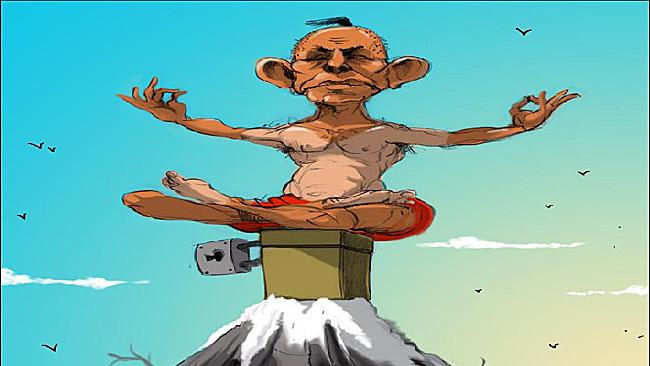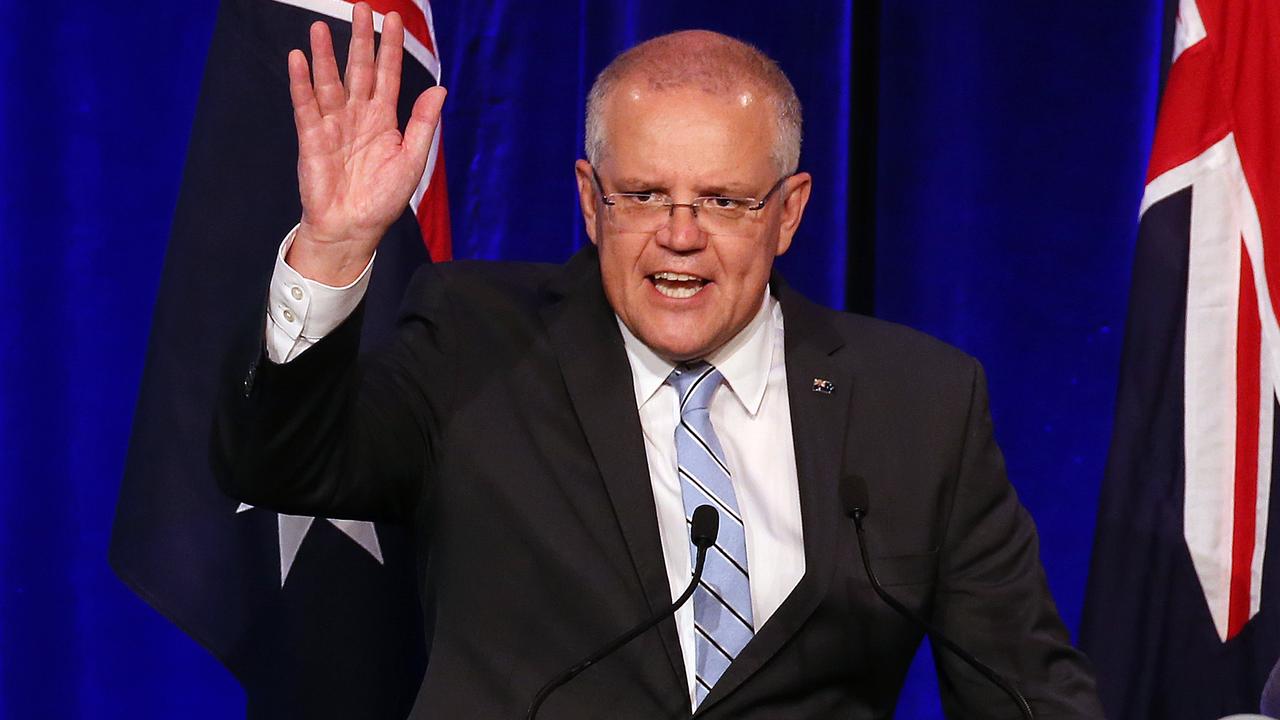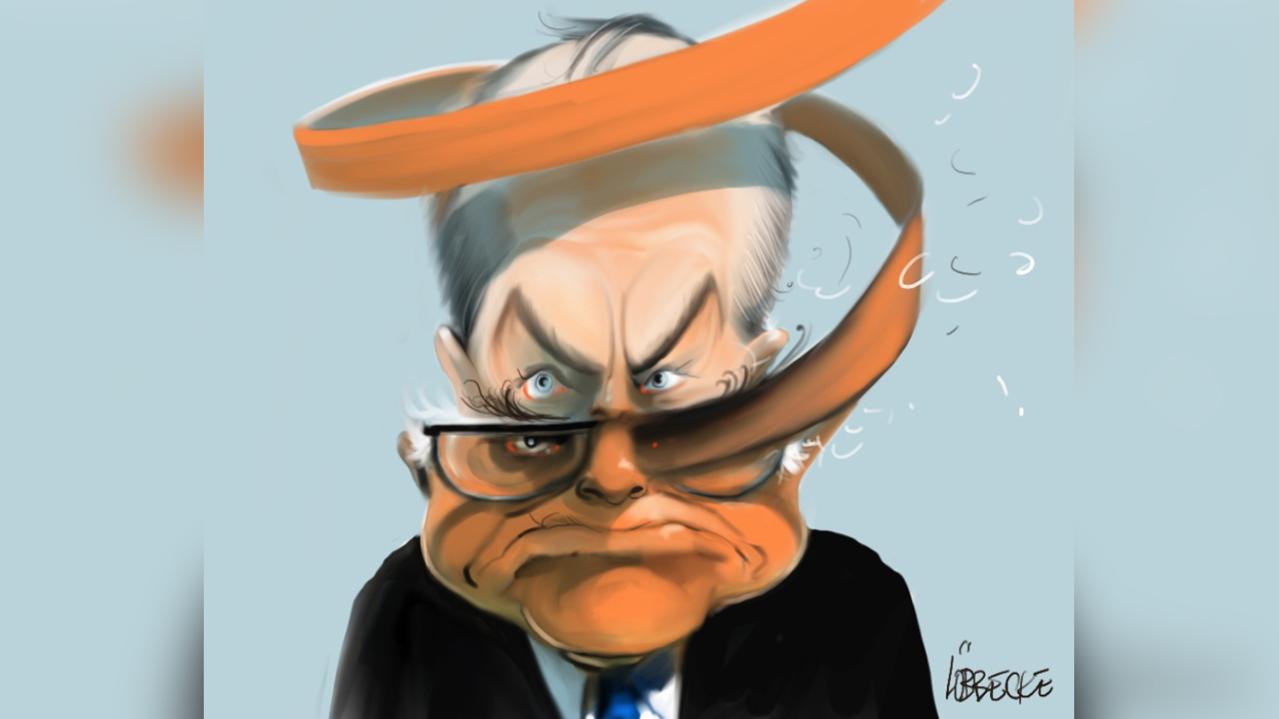The plan: Softly, softly, catchee voter

AN outbreak of ill-discipline, or any discussion whatsoever about policy details. That was the response from a Coalition frontbencher whom I asked what concerned them the most in this election year. What were the barriers, if any still existed, to ousting Labor from power?
The premise to the question, as it needed to be, was "other than Tony Abbott's poor personal polling numbers".
If MPs are allowed to fall back on that reason for worrying, they almost always will. Even MPs who give Abbott the credit that he rightly deserves for returning the Coalition to political competitiveness after he assumed the leadership are concerned about Abbott's unpopularity.
Apart from the irony - that the second half of the answer given is an example of what was alluded to in the first half (ill-discipline) - the take-out is that the Coalition will be running a small-target strategy this election year.
Small on exposure, small on ideas; there is little expectation that Abbott will inspire his way into the Lodge. But then he almost certainly doesn't need to. "If that were the test we might as well pack up now," our resident frontbencher jokingly adds.
But no one should think that even the most stridently ideological Liberals are necessarily upset about Abbott's small-target strategy. Liberals know that the shadow razor gang is looking at how it can trim the budget, and most of the ways of doing so are unlikely to be popular. Cuts rarely are, which is why most governments reserve them for their first term in office, becoming more profligate with their spending in the years that follow.
The fear in Coalition ranks about discussing policy, any policy, ahead of polling day is as much a concern that, if pressed, Abbott will rule out difficult decisions as it is a fear about how the Coalition might cost its policies. Senior Liberals do not want a policy debate this side of the election, even on subject matters they want a Coalition government to enact, for fear that Abbott's single-minded desire to assume power will see him compromise the quality of the government he would lead by ruling out anything he thinks voters won't like.
Abbott has already demonstrated how cautiously he intends to play this year by stating that his frontbench won't change if the Coalition is elected. Such a commitment is plainly undeliverable, but breaking the promise won't upset voters one little bit. Appointing a Speaker and perhaps a guarantee or two of post-parliamentary diplomatic careers for a few underperforming shadows gets Abbott out of the pledge.
If, however, Abbott answers too many questions on policy, his colleagues fear that ruling in or out particular initiatives will lock a first-term Coalition government into being a poor one. Breaking a promise to stick with a team voters barely know doesn't matter, but breaking policy promises sure does.
Kevin Rudd made the mistake of over-promising, thereby inflating his key performance indicators, when he was opposition leader. Abbott risks overcompensating in the other direction by ruling out the kind of initiatives a new government needs to be open to delivering on. Tax reform, workplace relations reform, deep cuts to recurrent expenditure and a major shake-up to the welfare sector are all on the Coalition's agenda, make no mistake. But only the final of these policy levers will be admitted to by Abbott ahead of polling day.
His senior colleagues worry that if he is pushed for details on the other topics, he'll rule out doing anything substantial in his first term.
We know from history that a government that doesn't do the heavy lifting in its first term usually doesn't have the political capital it needs to do so any time after that.
So tightly controlled is discipline within the Coalition ranks right now that even a simple going over of the challenges it faces, as we are doing here, risks a witch-hunt to find out who has been talking out of school, especially following the "Tony goes troppo" leak to Sydney's The Daily Telegraph on Thursday.
It is easy to forget that soon after the Coalition returned to opposition, ill-discipline was high. It's even easier to forget that, after he was put into the family and community services shadow portfolio, and then denied the chance to serve as manager of opposition business, Abbott's ill-discipline was as great as anyone's, as indeed it was on the campaign trail during the 2007 election. (Remember the Nicola Roxon incident or the Bernie Banton faux pas?)
So upset was Abbott at these twin mistakes being used to define the sort of participant he was in the Howard government, he used his policy manifesto Battlelines to point out that his service for years under John Howard's prime ministership shouldn't be overshadowed by minor failings in the final days of Rome.
In truth, Abbott could be as ill-disciplined as he liked after the 2007 defeat. Newly minted opposition leaders have little by way of carrots or sticks to keep their team in line. And removing someone of Abbott's stature from the shadow ministry was not an option for any opposition leader so soon after Abbott had been one of Howard's key ministers.
Writing books about what Liberals ought to do and writing columns in this newspaper about whatever took his fancy gave Abbott the chance to break out of the managerialist role he had been forced to play in Howard's government. He got away with a rather loose definition of sticking to one's portfolio area from 2007 to 2009 because Labor looked as if it were at the beginning of a long spell in government.
In another example of irony, Abbott now leads a largely disciplined opposition team on the cusp of returning to power. Ill-discipline is never far from the surface in the Coalition, mind you. So long as the polls suggest Abbott is about to become Australia's next PM it won't bubble to the surface too often. Assuming the status of Australia's prime minister-in-waiting gives Abbott the stature he needs to control his team, a vital ingredient of a successful election campaign.
This journalist, for one, has grudging respect for Abbott's chief of staff, Peta Credlin, who wants to keep the focus on the government and not the opposition (except when using her femininity to help defend her boss against accusations of misogyny).
If you take the view that voters know what they don't like, and they don't like the PM or indeed the government she leads, why get in the way of that relationship?
Which is also why Liberals should fear a Rudd comeback, if Labor finds a way to painlessly orchestrate it. Rudd may have been on the nose when he was ousted as leader, but since that time public sympathy has grown for the way senior Labor colleagues have treated him.
A Rudd comeback would involve a clean-out at the top of the government, removing many of the ministers Liberals like to attack. And in the present climate of an unpopular PM and an equally unpopular opposition leader, turning to Rudd could be a game changer for Labor.
Peter van Onselen is a professor at the University of Western Australia.


